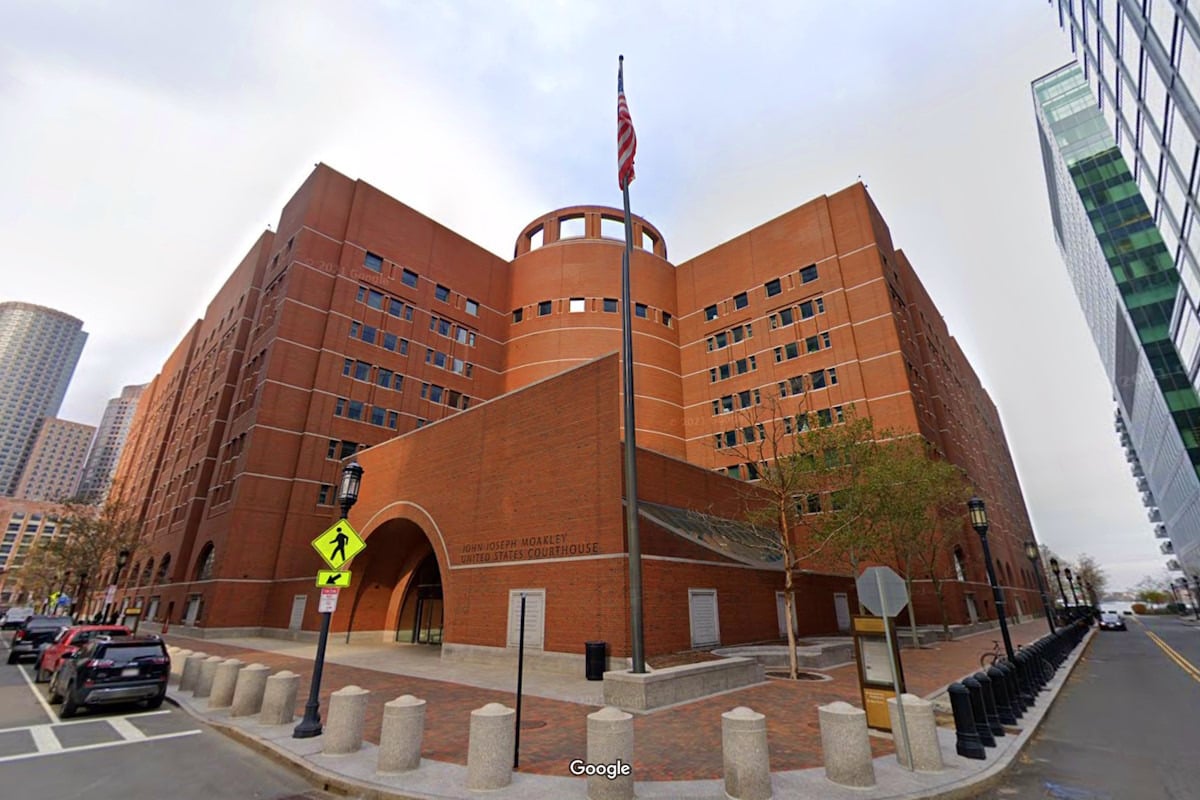Yesterday, a man from the Boston area entered a guilty plea to the federal charge of illegal possession of a handgun with an obliterated serial number while he was on supervised release for an earlier federal firearm crime.
Dane Mitchell, 32, from Boston and Revere, Massachusetts, pleaded guilty to being a felon in possession of a pistol and ammunition as well as possessing cocaine with the intent to distribute. Both charges stem from the same incident. The Chief Judge of the United States District Court, F. Dennis Saylor IV, set the date for the sentence hearing for January 9, 2024.
Mitchell was identified in 2021 as the creator of a Snapchat account that posted photographs of himself posing with weaponry. The account was discovered during an investigation into a violent gang in Boston. In particular, the photographs displayed Mitchell’s face in close proximity to firearms and revealed that his vehicle had been riddled with bullet holes after he had been shot at. Because of a federal conviction he received in Maine in 2018 for illegally transporting firearms, for which he was sentenced to 27 months in prison and three years of supervised release, Mitchell is not allowed to possess firearms or ammunition. His sentence for this crime included both terms.
During the search of Mitchell’s Revere residence in December 2021, the following items were discovered: a Taurus TCP Model 738 PT.380 calibre pistol with an obliterated serial number, loaded with four rounds of.380 calibre ammunition in the clip and one round in the chamber; five additional rounds of the same type of.380 calibre ammunition; one round of 5.7 millimetre ammunition; cutting agents; bags of cocaine, cocaine base, and fentanyl;
If convicted of the crime of being a felon in possession of a firearm and ammunition, the potential penalties include up to ten years in prison, three years of supervised release, and a fine of up to two hundred fifty thousand dollars. The crime of possessing cocaine with the purpose to distribute it carries a possible term of up to twenty years in prison, a minimum of three years of supervised release, and a possible fine of up to one million dollars. The United States Sentencing Guidelines and the statutes that govern the decision of a sentence in a criminal case are used by judges in federal district court to determine the appropriate sentence to impose on criminal defendants.
The operation was carried out as a part of a Strike Force Initiative that is being carried out by Organised Crime Drug Enforcement Task Forces (OCDETF). This initiative allows for the development of permanent multi-agency task force teams that work side-by-side in the same place. This co-located methodology makes it possible for agents from different agencies to work together on intelligence-driven, multi-jurisdictional operations. The goal of these operations is to disrupt and dismantle the most prominent narcotics traffickers, money launderers, gangs, and transnational criminal organisations.
The statement was made by Acting United States Attorney Joshua S. Levy, Special Agent in Charge of the Boston Division of the Bureau of Alcohol, Tobacco, Firearms, and Explosives James M. Ferguson, and Special Agent in Charge of the Drug Enforcement Administration New England Division Brian D. Boyle. The police departments in Boston, Quincy, and Lynn all contributed in their own unique ways to the investigation being conducted. The prosecution of the case is being handled by Assistant United States Attorney Christopher Pohl of the Narcotics and Money Laundering Unit.










